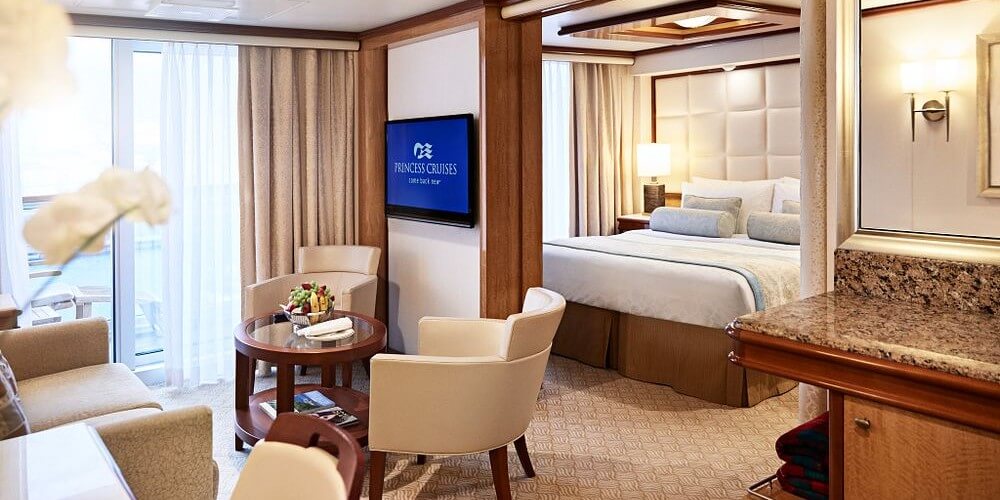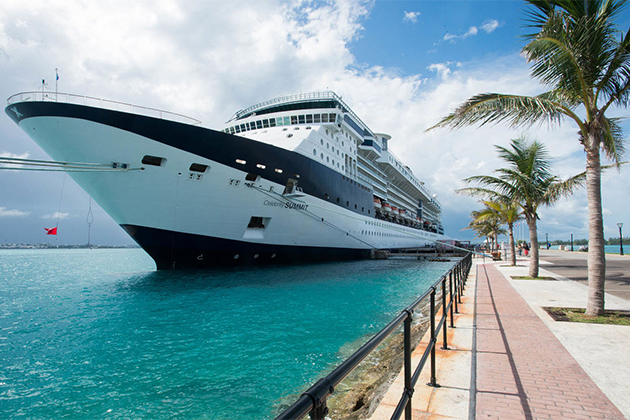
A CDC cruise ship program may help cruise ships avert transmission of the COVID-19 virus. Continue reading to find out about the CDC's color-coding system, vaccination recommendations, as well as the conditional sailing certificate. You can also learn about the risks associated COVID-19 transmission. Don't worry; the CDC will continue providing guidance and recommendations to cruise lines. These steps will allow cruise ships to improve safety and security for all passengers.
CDC's COVID-19 program for cruise ships
The Centers for Disease Control and Prevention have published new guidance for COVID-19 on cruise ship water. The guidance is based only on current scientific evidence, and will be periodically updated. Cruise ships will be notified when new guidance is released. To learn more about COVID-19, tourists should contact their cruise line. Read the latest updates below to learn more. Al Tompkins was the senior faculty member responsible for this article.

Color-coding system of the CDC for COVID-19 case
After months of rewriting regulations the Centers for Disease Control and Prevention have retired their "COVID-19" Program for Cruise Ships. Although the program is no longer in operation, the CDC will still provide guidance to cruise lines on how to prevent the spread. The CDC's colour-coding system lets passengers know which ships have the highest risk of spreading the virus.
CDC recommendations for COVID-19 vaccinations
Cruise lines have now the ability to take advantage of a new tiered vaccine system that increases safety for passengers. The CDC recommends that 95% of passengers and 95% of crew members be fully vaccinated against COVID-19. The new guidelines require cruise lines to post COVID-19 vaccine status on their websites. This will enable passengers and crew members to find out if the ship is at high risk for COVID-19. CDC also recommends that travelers receive the COVID-19 vaccine before boarding a ship, and that testing should be conducted within one day of embarkation.
Conditional sailing certificate from the CDC
The certification statement of a cruise ship must contain information that aids the CDC to assess safety for passengers and crew. It should also address any safety and health issues and their resolution. Any records cruise ship operators have, including the volunteer crew's and passenger testing results, must be included in their COVID-19 conditional sailing certificate application. The CDC must also receive a detailed plan and an after-action report from the cruise ship operator after every incident.

CDC's guidance for commercial repatriation of U.S.-based persons with COVID-19
HHS has issued updated guidelines for commercial repatriation of U.S.-based persons with COVID-19. HHS will continue to engage with stakeholders and the Return to Workplace Task Force. Employers are also encouraged to develop and implement phased return-to-work plans. Employees should be made aware of the guidelines.
FAQ
Are cruise ships safe?
Yes, cruise ships are very safe places to travel. Many cruise ships have state-of the-art security and technology. Cruise ships also follow strict safety standards. Crew members receive extensive training and must pass background check. Passengers are screened upon boarding the ship. Some cruise lines require passengers show proof that they have been vaccinated against certain diseases. Contact the customer service department of your cruise line immediately if you have any concerns about your safety onboard.
Should I book my cruise before or after booking my airfare?
It depends on where you are travelling to. You should book your cruise in advance to have more flexibility regarding dates. For example, if you know you will be going to Europe during the summer months, you could plan a cruise around those dates. You might also want to book your cruise earlier if you plan to travel to Asia and South America.
Do I need to tip my Cruise Director?
This is dependent on the cruise line. Some cruise directors do receive tips while some don't. When you board the cruise ship, ask your Cruise Director if they need tips. They will typically tell you how much they expect tips.
What do you get on a cruise?
Have fun is the most important thing. There's no need to be too serious - just have fun.
There are many activities that everyone can take part in. And if you're bored, someone always wants to talk to you.
Cruising is all in the enjoyment of yourself and relaxation. It isn't about seeing everything.
There are many cruises that you can take, from short European trips to long Pacific voyages. It all depends on the purpose of your vacation.
Statistics
- You can save 15% off the total price if you book in advance of your trip. (travel.usnews.com)
- If you're traveling alone, you may also need to factor in a single supplement, adding up to as much as 100% of the cruise fare. (travel.usnews.com)
- In addition, 10 to 15 percent gratuity is typically added to bar bills — for alcohol and soft drinks — and gratuities are applied to spa treatments. (cruiseline.com)
- *20% Gratuities Apply on Free Unlimited Open Bar; Free Specialty Dining. (ncl.com)
External Links
How To
How to be safe on a cruise ship
There are many things to be aware of before you board a cruise ship. You must understand how to behave when onboard so you don't get into trouble. Here are some safety tips you can use to make sure you have a great trip.
-
At all times, be aware of your surroundings. People tend to gather together on cruise ships, especially at meals. You're often surrounded by people who are eager to talk and eat. It can be easy to get distracted. Do not let people distract you from your task. If you witness someone smoking or drinking alcohol, please tell them politely that they must stop.
-
Keep your room keys close to your body when you board a ship. When you get onboard, hand your key over to the person checking you in. You will be able to tell them where you are if they need you. Keep your passport with you.
-
Keep valuables hidden from view. Most cabins come equipped with drawers under the bed. It is a good place to store valuables like money, credit cards, passports, etc. Also, make sure nothing valuable is visible in plain view. Keep your bags hidden in the closet.
-
Stay hydrated. Even though cruise ships are well-stocked with water, it can sometimes be hard to remember how much. Use the free bottled water that is available onboard. You should avoid becoming dehydrated. Dehydration can make you tired and cranky, which can lead to fights or other accidents.
-
Always pay attention to announcements. Announcements can also be seen on television screens and in public addresses systems. They contain safety procedures, emergency exits, weather reports, and more. These announcements should be heeded. They might save your life!
-
Always lock the cabin before you leave. No matter how friendly a crew member may seem, never leave your cabin without locking it. Unlocked doors are often used by thieves to gain entry. You should ask the crew for permission before you use the restroom.
-
Avoid going overboard alone. It can take some time for the ship's crew and you to be rescued from the water. In the meantime, sharks and other sea creatures may be attracted to your body. It is best to wait for help.
-
It is forbidden to smoke in the elevator. These elevators have high pressure, so smoke can build-up quickly. Get out as soon as you feel dizzy. Even though the air outside is fresh, it doesn't mean breathing is safe.
-
Be familiar with the evacuation procedures. Each year, thousands of people die after being trapped in elevators. Follow the screen's instructions if an emergency happens.
-
Get familiar with the fire drill. Fire drills take place regularly, almost every day. Everyone on deck must evacuate during a drill. Follow the directions given by the crew members. Once the drill is complete, go back to your cabin and lock the door.
-
Ask questions before you accept food and drinks. Cruisers are often concerned about food poisoning. It is common for people to not realize that certain foods can't be eaten onboard ships. For example, raw oysters are forbidden aboard most cruise ships. If you aren’t certain whether or not the food that you’ve been served is safe for you, please politely decline to accept it and find another meal.
-
You should be cautious when swimming in the pool. Inadvertently falling into pools has been a frequent occurrence. If this happens to you, tread water until someone notices you. It is possible to slip and tumble on the deck at any given moment. Wearing proper footwear is a must and paying attention to the surroundings are important.